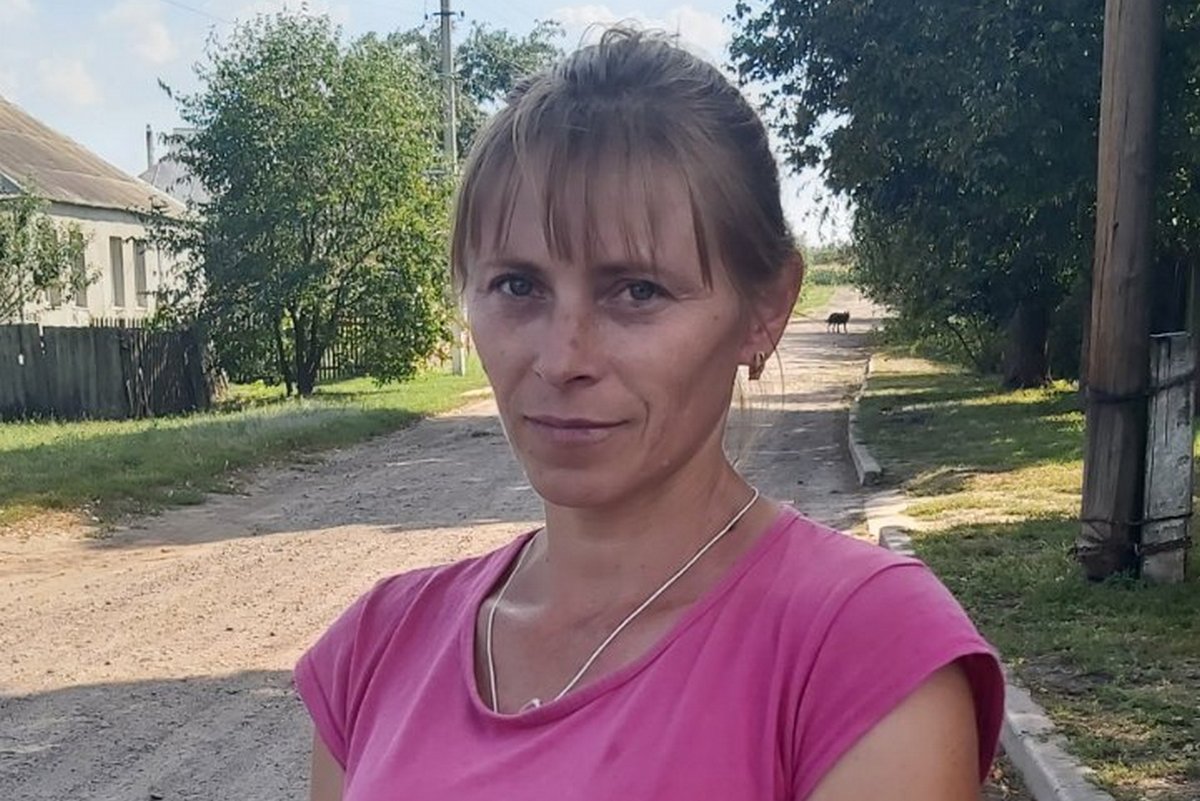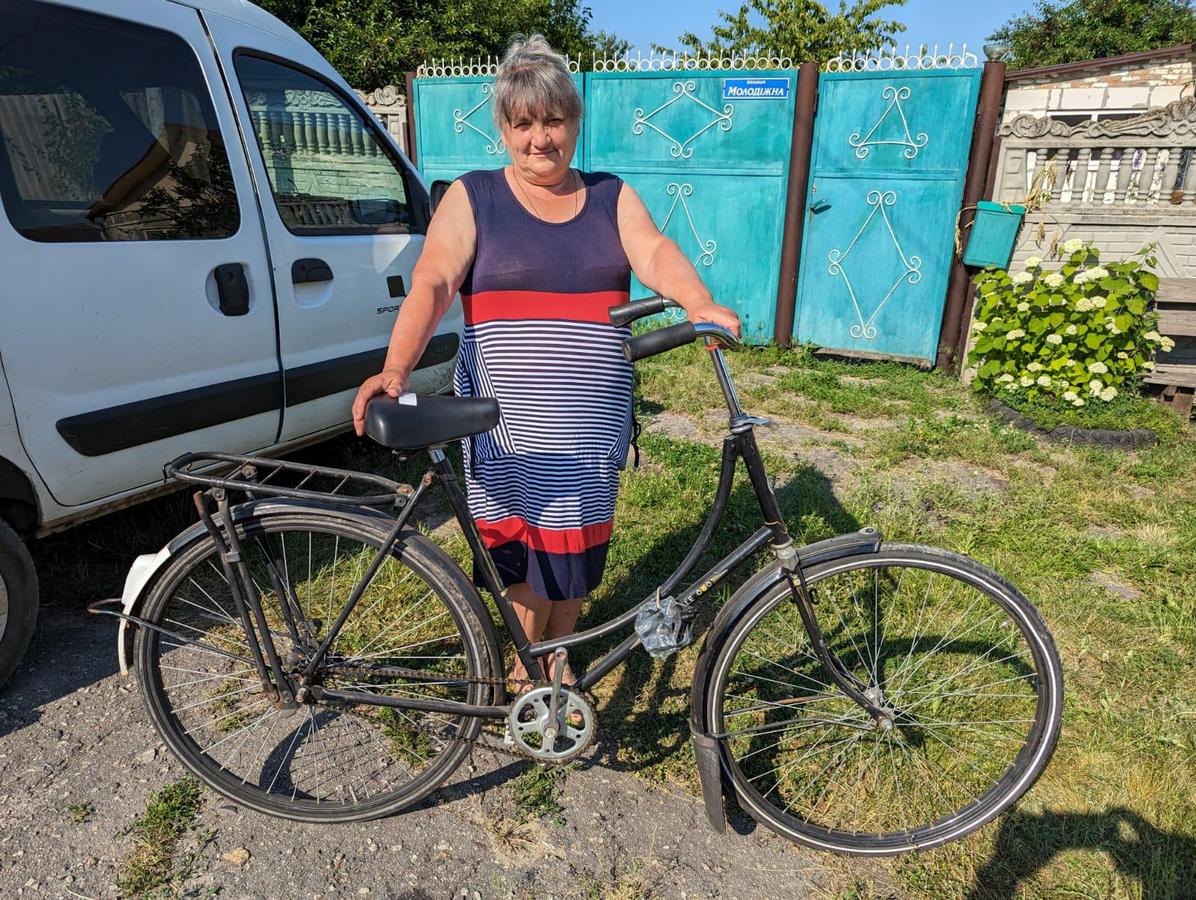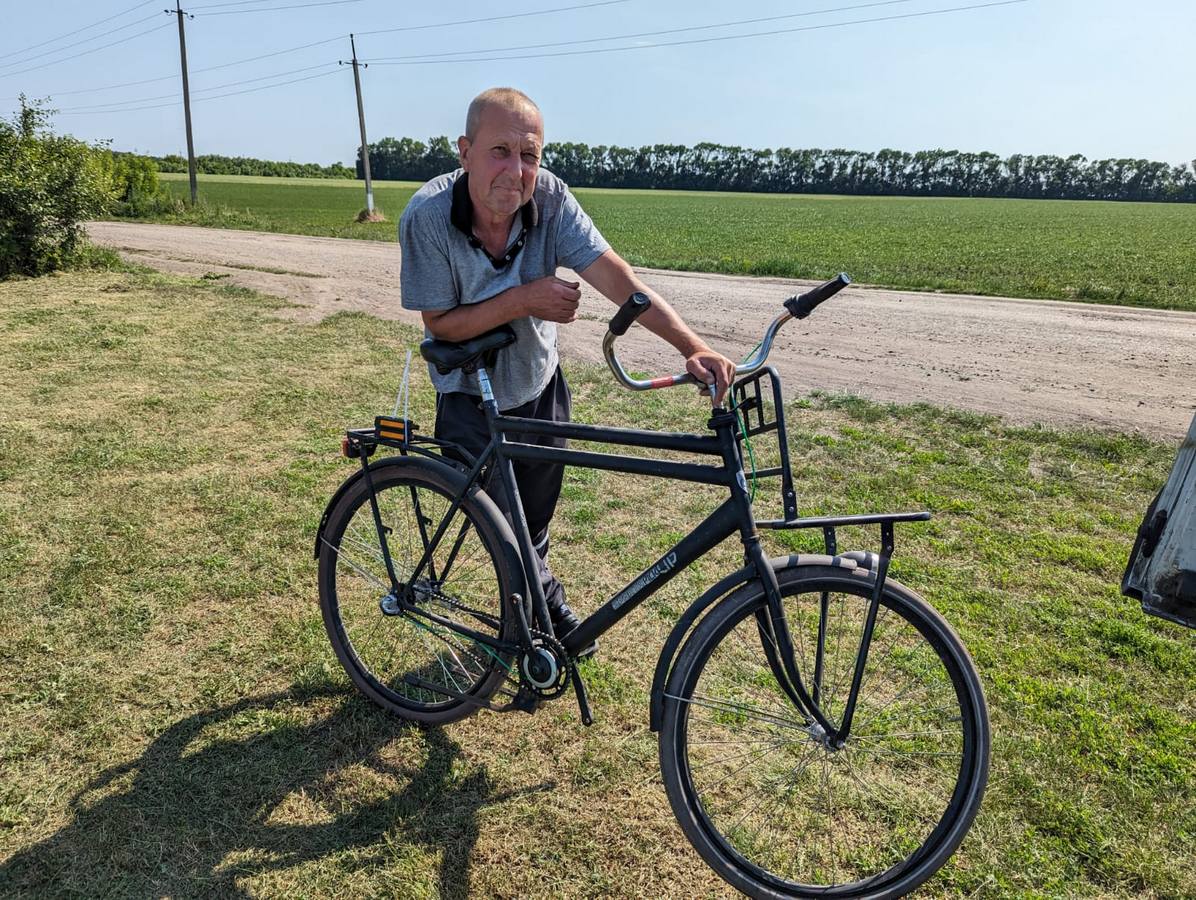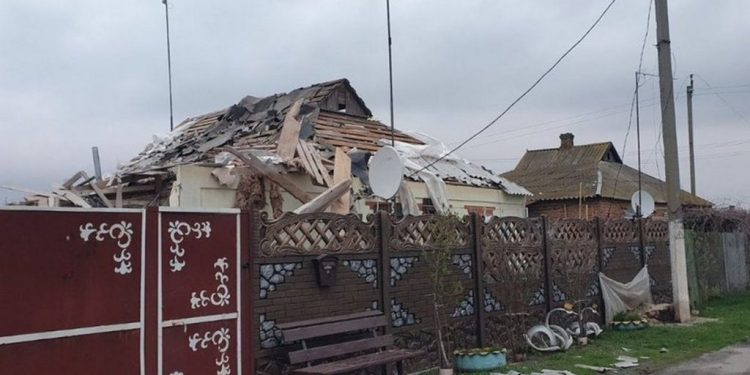“I got subscribed again, as I can’t live without a newspaper,” says Valentyna Kyryyak, 86, from the village of Dovzhyk, located in the Zolochiv Community of the Kharkiv Region. After the “reform” of Ukrposhta, it started having problems. The mail carrier brought every issue to Valentyna Leonidivna directly to her house and was “made redundant.” And the woman did not receive any of the prepaid issues in the second half of the year…”
Vasyl Miroshnyk, the editor-in-chief of the Zoria and Visnyk Bohodukhivshchyny newspapers, brought her copies himself. The editor does not rely on Ukrposhta for long, so every Friday, he gets into his own car and drives to the Kharkiv printing house. He collects the circulation there (now the newsroom publishes a double newspaper under both its logos) and delivers it to the settlements of the Zolochiv and Bohodukhiv Communities, including the border ones.
“A tiny miracle happened today,” says Vasyl Miroshnyk in a conversation with a journalist from the National Union of Journalists of Ukraine (NUJU) information service. “The printing office delayed the issue for four hours. And it was at this time that the russians shelled the road on which I was supposed to drive. So, I was lucky not to come under fire. No wonder, you say?”

One of the priorities of the NUJU is to support the media in the front-line and de-occupied territories.
“At the NUJU, we admire courageous journalists from front-line local newspapers who risk their lives and continue preparing materials and distributing newspapers among compatriots in the territories under hostilities or shelling,” says NUJU President Sergiy Tomilenko. “Like the whole country, admire the courage of postal workers, who continued to work last year amid shelling! And we are outraged that these courageous mail carriers are being thrown into the street now. And as a result, there is a critical situation with the postal delivery of presses throughout the country.”
After the dismissal of the mail carrier, each publication solves the problem of delivering its publications to readers in a different way. Vasyl Miroshnyk has volunteer helpers in the villages to distribute the newspaper where mobile post offices cannot reach. As one of these assistants, Tamara Hovor, from the border village of Ivashky, said, it is not an easy task: you have to take into account the habits of the russians regarding the time of shelling, constantly change the route, and know who can deliver the newspaper if you cannot deliver it on time. She delivers newspapers on a scooter and says he “hopes only on God that everything goes fine.”
“It would be inappropriate to demand such self-sacrifice from the employees of Ukrposhta’s mobile offices,” says the editor. “But the work of mail carriers, who delivered pensions, newspapers, and other postal items under fire, should command all the more respect. Currently, in connection with the transition to mobile departments, many of them have been “reduced.”
Tamara Hasylova, from the village of Pysarivka, worked at the post office all her life. She has three children, and her husband (a tractor driver before the war) is currently at the front. The whole village prepared him for the army service. Today, Tamara is “dismissed.” However, they offered her a job in Kharkiv for a salary of UAH 7,000. This is much more than she had but much less than she needed to rent an apartment in the city and raise three children. Tamara has been unemployed since the beginning of July, but, as before, she delivers pensions to those who cannot come to the center of the village and receive their money… The woman is convinced that the mail carrier of the past does not exist and cannot leave elderly fellow villagers alone with their problems.

We have often heard the words “we cannot leave people” from the mail carriers of the Zolochiv and Bohodukhiv Communities of the Kharkiv Region.
The villages of Vidrodzhenivske and Liutivka are located near the border. They [the enemy] shell these settlements all the time. But local mail carriers Vira Kotsenko and Tamara Chumak treated the shelling philosophically while doing their work.
Vira Kotsenko today found herself “on the other side of the barricades” – she used to distribute pensions, but now she is the one to receive it. She is planning to abandon postal services and get a bank card.
Mail carrier Maryna Protchenko delivered pensions to people together with her husband. They got into their own car and drove around the addresses of elderly people.
Our interlocutors are united in their opinion that the work of mail carriers in villages was never just about earning money. Everyone realized that they were performing an important social mission.

However, dismissed mail carriers are trying to be optimistic. Many are already retired and have something to live for. Others are happy that at least the front has moved a little further from them, and the shelling has become less regular. Others hope that workers in mobile offices will gain experience and earn better jobs. For now, postal deliveries, especially bills for the payment of communal services, simply remain piled up somewhere in the village council or even in the village store. As a result, communal services are not paid on time, people acquire debts, and they lose the right to subsidies…
Another problem is the difference in the days of publication of newspapers and their distribution. For example, mail carriers come to the village on Thursday, while the newspaper had been published a week earlier.
Yurii Vinichenko is surprised by the postal “reform” from a purely economic point of view: he received 3,800 hryvnias every month, and many received even less. Nowadays, mail carriers receive the minimum wage, and the driver – a little more; the car must be refueled…

Currently, the management of Ukrposhta continues to claim that everything is fine with postal delivery in Ukraine, and it is proud of its innovations.
“When we say that Ukrposhta is always there for you, it means we are there. And when, under shelling, we deliver parcels and pensions to the Donetsk Region, Luhansk Region, Kharkiv Region, Sumy Region or Zaporizhzhia Region, and then by boat – to Kherson Region, and now also abroad,” wrote the head of Ukrposhta Ihor Smilianskyi on Facebook. “We have been delivering parcels to Poland since the first days of the war. And now, thanks to the decision of the Government, the Pension Fund of Ukraine, and the National Bank of Ukraine, we can also deliver your pensions if you are temporarily abroad. We are starting with Poland, but there will also be other countries.”
While the management of Ukrposhta is proud of other people’s merits and promises support to foreign pensioners, in the villages of the Kharkiv Region, they wonder how it was possible to turn a state-owned enterprise that performed important social functions into just a business that works according to the usual principle of “profitable – not profitable”?

Maksym Stepanov, NUJU Information Service

 THE NATIONAL UNION OF
JOURNALISTS OF UKRAINE
THE NATIONAL UNION OF
JOURNALISTS OF UKRAINE
















Discussion about this post